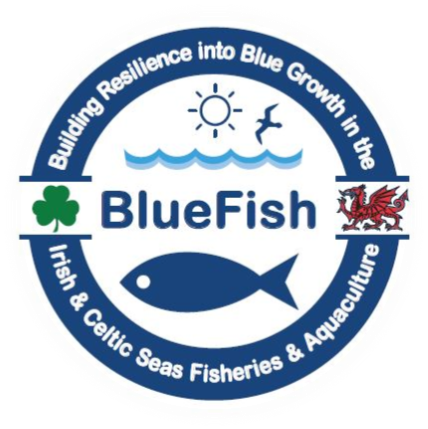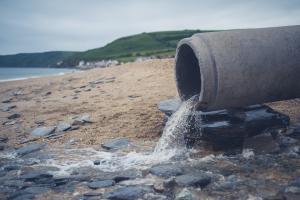As the 26th United Nations Climate Change Conference (Cop26) takes place in Glasgow, countries start to focus on building back “greener and better” and limiting the increase in global temperature to 1.5C. The global direction of travel is changing as the world moves to net zero targets, the protection of the environment and the restoration of biodiversity in an unprecedented way.
To many, climate change and the complex scientific research surrounding it is often confusing and mystifying - this is where the BlueFish project set out to help.
Led by Dr Shelagh Malham at Bangor University, the BLUEFISH project (2017 to 2021) focused on the Irish and Celtic Sea region and aimed to provide region-wide climate change adaptation strategies for the benefit of coastal communities. BLUEFISH assessed and disseminated knowledge on the risks and opportunities for commercial fish and shellfish under climate change scenarios.
Critical to life on the planet
Shelagh stated:
"The Irish and Celtic Seas, like other coasts, seas and oceans worldwide are critical to life on the planet. Solutions must be found and urgently implemented in order to preserve our marine ecosystems and our planet for future generations."
The Marine Institute led Activity 2.4 Ecosystem Goods and Services which focused on the transfer of knowledge to stakeholders, including policy and industry on the goods and services provided by the Celtic Sea-Irish Sea ecosystem to the coastal communities of Ireland and Wales and to the wider society. The importance of demystifying climate change concepts and of communicating the relevance of complex scientific research to the wider community was of paramount focus. By linking art and science to portray and explain these ecosystem goods and services and to depict plausible climate change impacts, a significant collection of artwork and infographics has been developed which is unique to BlueFish.
Dr. Paul Connolly, CEO of the Marine Institute stated:
“The climate change issue demands considerable public investment to reverse. This investment will only arise if the general public is supportive, and this support is only likely if climate change issues are widely understood. The use of art to connect with people may be an effective way to change attitudes and win support for the societal actions required to reverse the impacts of climate change.”.
As opportunities to tour the BlueFish exhibition in 2020 and 2021 were greatly impacted by the restrictions on gatherings due to Covid 19, the Marine Institute now present the full collection of artworks through the insightful and engaging animation - Demystify.
Demystify follows an ordinary character in a coastal setting who is initially confused and frustrated by the changing unseasonal weather conditions. Throughout the animation viewers can engage with the artwork in its intended structure and flow through the eyes of an everyday perspective. Presented in a coastal and gallery setting, this perspective builds and progresses to a strong message. Demystify brings the viewer to the moment of realisation which illustrates that everything is linked, one change impacts another and we must act collectively to build resilience to the impacts of climate change.
The Demystify animation can make a valuable contribution informing the action for climate change debate in both Ireland and Wales, from policy makers to coastal communities and hopefully as far reaching as COP26.
Dr. Paul Connolly, CEO of the Marine Institute stated:
I think we are now on the crest of a wave - a huge shift in thinking about the ocean, the value of the ocean, the impact of climate change and how the ocean influences climate change.”
Demystify is now available to view on https://youtu.be/ubPb-H5nzT8
BlueFish, a cross border collaboration, part-funded by the European Regional Development Fund through the Ireland Wales Co-operation Programme 2014 – 2020.






